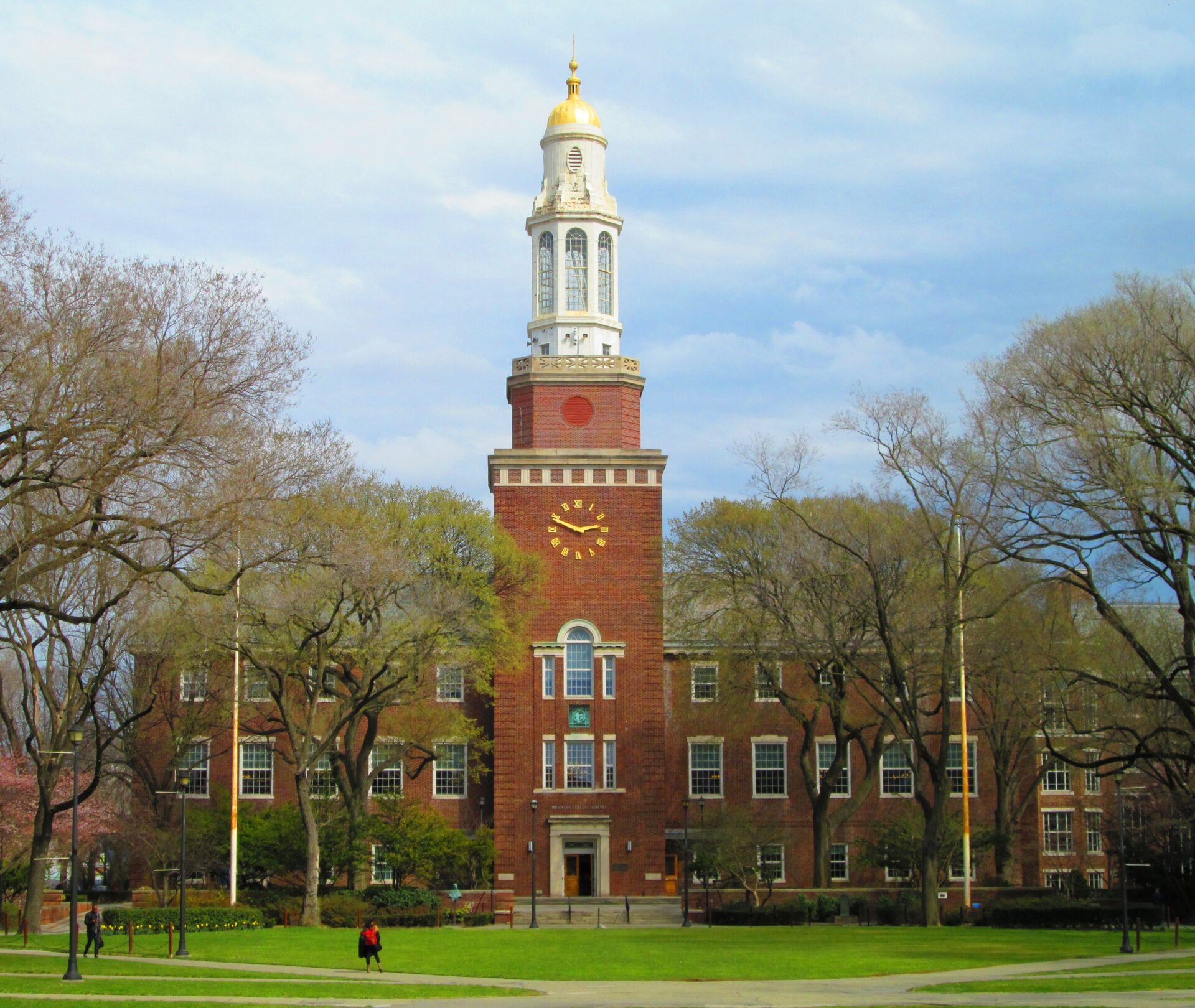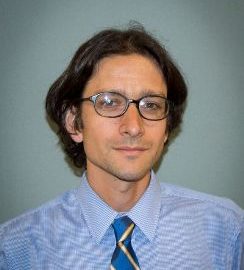“College and its End(s)”—that was the title I had given to the section of senior seminar I taught this past fall. The class was conceived with two animating questions in mind: what is the purpose of an education, particularly a liberal arts one, and do current trends in higher education (regarding free speech, safe spaces, microaggressions, trigger warnings, and the like) encourage or impede the realization of that purpose? I had anticipated that the semester would be fraught with spirited debates and heated exchanges; that I would be able to lob a rhetorical grenade into the room at the start of each class, take my leave, and return forty-five minutes later to see who was left standing. (Retroactive trigger warning: the previous sentence contains language that some may find upsetting, particularly those offended by hackneyed metaphors.) My expectations were not met. It was a welcome reminder that my vaticinatory skills are limited and that I have a greater gift for teaching—a line of work rife with uncertainties that can prove so richly rewarding—than for prophesying.
It became apparent early on that my students by and large were unaffected by the tumults that have convulsed college campuses across the country these past few years. They were aware, to a degree, what has been happening, though many were astounded to learn of the ubiquity and severity of those convulsions. But they were unmoved by the putative injustices that impelled so many students of their generation to revolt. I had thought I would find sympathizers, perhaps even zealots, combatants eager to take up arms in defense of their comrades at far-removed campuses on issues near and dear to their collective hearts. Instead, to my concomitant relief and dismay, these campus crusades tended to elicit apathy, occasionally even antipathy.
One might contend that this much I should have foreseen, even with my limited prognosticatory capacities. At a small regional liberal arts school in central Illinois, in a classroom populated by students who were, on the whole, palely and uniformly complected, it should have been evident that my rhetorical grenades would land as deafening duds. But that expectation never seemed merited, notwithstanding that ultimately it turned out to be accurate. For one, social justice martyrdom, like early Christian martyrdom, is broadly inclusive. Indeed, a multitude of social justice warriors could have joined the class without doing anything to pervert the ostensible uniformity that pervaded it.
My students … were indignant because their more privileged peers, who studied at some of the finest institutions in the world, replete with resources and opportunities not granted to students at “lesser” schools, frittered away their time erecting Himalayan molehills.
Moreover, the outward congruities that would have precipitated such a prediction would have been confounded by the no less veritable and much more determinative incongruities that obtained within—incongruities of intellectual, religious, political, and other varieties. Far from viewing the world in the same light, my students did not see eye-to-eye on a host of issues, some of which provoked a good deal of discord. It was not that they were incapable of disputation nor for that matter indignation; they simply could not share the resentment that plagued so many of their peers at elite institutions. To the extent that my students—many of them from modest backgrounds, some first generation—were piqued, it was not about puerile Halloween costumes, controversial speakers, and monuments to historical figures who had the impudence to harbor views that were more consistent with their age than our own; they were indignant because their more privileged peers, who studied at some of the finest institutions in the world, replete with resources and opportunities not granted to students at “lesser” schools, frittered away their time erecting Himalayan molehills.
Again, this was not the reaction I had anticipated. It was something of a revelation and a refreshing one at that. These students thirsted for knowledge; they craved debate and provocation and an exposure to competing views. What they wanted from their education—from their educators—was a broadening of their minds, not, as students elsewhere seemed to be clamoring for, a narrowing or closing of them.
As it became apparent that the clashes I had anticipated would not materialize, the focus shifted from habitually aggrieved students (who elicited so little sympathy) to the education system that habitually pandered to them. While no student can be forced to learn (as Charles Sanders Pierce observed, “in order to learn, you must desire to learn”), the circumscription of students’ horizons is not being effected by students alone. Too often the very people who should be fostering debate, professors themselves, are stifling it, and doing so enthusiastically, with untarnished and unconflicted consciences.
In our palely complected class, this was made evident with respect to white privilege. By a show of hands, virtually every student in the room had been subject to some lecture on white privilege, with a number of the male students having been singled out for especially vehement harangues. Invariably, white privilege was presented as a matter of fact, one as incontrovertible as the first law of thermodynamics. Whatever the verity of white privilege may be, by placing the concept beyond scrutiny, a number of legitimate questions go unasked. (What does white privilege mean in an area, say, southern Appalachia, where whites systematically are depressed, that is, underprivileged? Could it be analogized to a human navigating a low-hanging cave enjoying upright privilege—the privilege of walking upright? Are there no non-white privileges to speak of, particularly in the realm of higher education? In an age when privilege has become a term of opprobrium, does obliging people to bear the letter P on their pallid chests do more to bring people together or keep them apart?) By stating that white privilege exists and that you, white person, must possess it with the same degree of certitude that energy exists and that you, isolated system, must conserve it, teachers preclude all debate on a matter that eminently is ripe for it.
The perniciousness of this approach is compounded by a natural tendency for students to trust their professors. This trust results logically, though not inevitably, from the fact that as neophytes, it is hard for students not to be awed by their instructors’ knowledge of subjects to which those instructors have devoted a disproportionate amount of time researching and pondering. It is easy for teachers to lose sight of this trust, and, worse yet, take advantage of it.
I was reminded, or perhaps enlightened, about the extent of that trust during our reading of Greg Lukianoff’s Unlearning Liberty. In one of the later chapters, Lukianoff discusses “the mandatory ideological ground rules for discussion developed by Lynn Weber, a [former] professor of women’s studies at the University of South Carolina.” The first of these mandatory ground rules reads: Acknowledge that racism, classism, sexism, heterosexism, and other institutionalized forms of oppression exist. I asked my students if they were to receive a syllabus with this ground rule stated on it, would they be at all troubled? After a brief ensuing silence, one of my students thoughtfully and somewhat hesitantly said no. As she explained, it was not because she acknowledged the claim to be true, but because her knowledge of institutionalized forms of oppression was so wanting that she would not have thought to second-guess it.
That students are being required to acknowledge the existence of such institutionalized forms of oppression as a precondition for debate suggests that the line between education and indoctrination has become dangerously blurred.
That forms of oppression have been institutionalized in the past cannot be doubted; that those forms remain so can. That students are being required to acknowledge the existence of such institutionalized forms of oppression as a precondition for debate suggests that the line between education and indoctrination has become dangerously blurred. The educators who demand the affirmation of these articles of faith seem more intent on inducing dogmatic slumbers than wresting students from them. To add irony to injury, those who accept such claims as gospel are said to be woke.
Students schooled thus cannot but become more narrow-minded, and a society populated by such narrow minds cannot but become more polarized. While a defense of chattel slavery or the annihilation of the Jews ought to be beyond the pale, surely one can raise reasonable questions and harbor legitimate misgivings about, say, DACA or Obergefell v. Hodges. But in too many classrooms, there is no opportunity for those questions to be raised and those misgivings conveyed. In this regard, consider supporters of Trump who ipso facto are frequently discouraged from sharing their views in class. However distasteful a professor may find Trump’s views to be, the fact remains that nearly 63 million Americans voted for him. The professor who bars the views of these voters from his classroom fails to illumine the world outside it and does little to prepare his students for life in that world; he acquaints students with a society as he would like it to be, rather than the one that actually is; a fake world (to employ a fashionable adjective) in place of the real one. Again, this is more indicative of indoctrination than education.
However distasteful a professor may find Trump’s views to be, the fact remains that nearly 63 million Americans voted for him. The professor who bars the views of these voters from his classroom fails to illumine the world outside it and does little to prepare his students for life in that world; he acquaints students with a society as he would like it to be, rather than the one that actually is.
This tendency to narrow students’ minds instead of expand them was illustrated in less politicized and more subtle ways. One of the more illuminating instances occurred during the final week of the semester when we were considering what effect, if any, these currents in higher education have on the sciences. One of the divides that my students’ pale exteriors concealed—or at least failed to reveal—was between those in the sciences and those in the humanities. There was a latent tension between the two camps, one that—as avowed by the humanists and not disavowed by the scientists—boiled down to the conceit that humanistic pursuits were worth less (if not to say worthless), not simply in terms of earning power, but more fundamentally with respect to securing knowledge. Knowledge—genuine knowledge—was obtained scientifically or not at all. In spite of my best efforts to foment a debate between the two camps over the course of the semester, they preferred to maintain their tenuous peace and the tension between them remained dormant thereafter.
these students were incipient devotees of scientism and evidently nothing in the course of their liberal arts education had shown them the folly of that.
In the last week, we turned our attention to the academy’s well-documented ideological uniformity and the possible effect it has on scientific undertakings. Is science adversely impacted by the pronounced leftward tilt on the part of its practitioners? (This tilt is more marked in the softer sciences. In psychology, for example, left-leaning academics outnumber those who lean right by a margin of 12 to 1, if not higher.) The mere suggestion that the answer might be “yes” raised hackles. Indeed, so hard did the science majors in the room bristle that I genuinely was taken aback. We had covered a host of contentious issues over the course of the semester and none seemed to strike a nerve as deeply as this. The reaction was all the more bewildering given that we already had discussed confirmation bias—the tendency to seek out information and interpret it in a manner that supports one’s preexisting beliefs—and the consensus was that it was a veritable problem in the academy and beyond. How, I wondered, were scientists immune from the failings that afflicted non-scientists? Methodology. Scientists had a method, a scientific one to boot, that rendered them less susceptible to the passions and predilections that swayed the rest of us. The shallowness of this answer was not without profundity. Though the word scientism appeared not to have been part of their vocabulary, in effect these students were incipient devotees of scientism and evidently nothing in the course of their liberal arts education had shown them the folly of that. It was an astonishing failing of that education, if ever there was one; a failing that no methodology was needed to see.
One of the criticisms leveled at the humanities by partisans of science is that whereas the sciences provide answers, the humanities only generate questions. There is some truth to this charge, but it misses the point. The reason why one earnestly and justifiably can still grapple with Plato’s ideas and not Ptolemy’s is because Plato addressed questions that are of enduring relevance and in some ways permit no final resolution. Is the cosmos geocentric? No. What is justice? There is a question that has bedeviled humans for millennia and appears no closer to being resolved. Do we really have a better understanding of justice—of the problem of justice—than Plato did two and a half millennia prior? It is doubtful. At the very least, what is not doubtful is that science can do nothing to settle the matter.
A liberal arts education once prepared students to take questions seriously; today, it conditions them to accept answers blithely.
A liberal arts education once prepared students to take questions seriously; today, it conditions them to accept answers blithely. Instead of being encouraged to reflect on that perennially pressing question, “what is justice?”, students are being told what justice is—and what they are being told isn’t even justice. A longing for certitude is natural, but the sort of certitude that educators today too often peddle is superficial.
Students and parents rightly are dismayed by the exorbitant costs of school these days, but even if those costs were reined in, college, so long as it fails to check its growing illiberality, likely will remain impoverishing. In an age that displays an increasing penchant for platitudes and certitudes, that impoverishment may prove immaterial.





